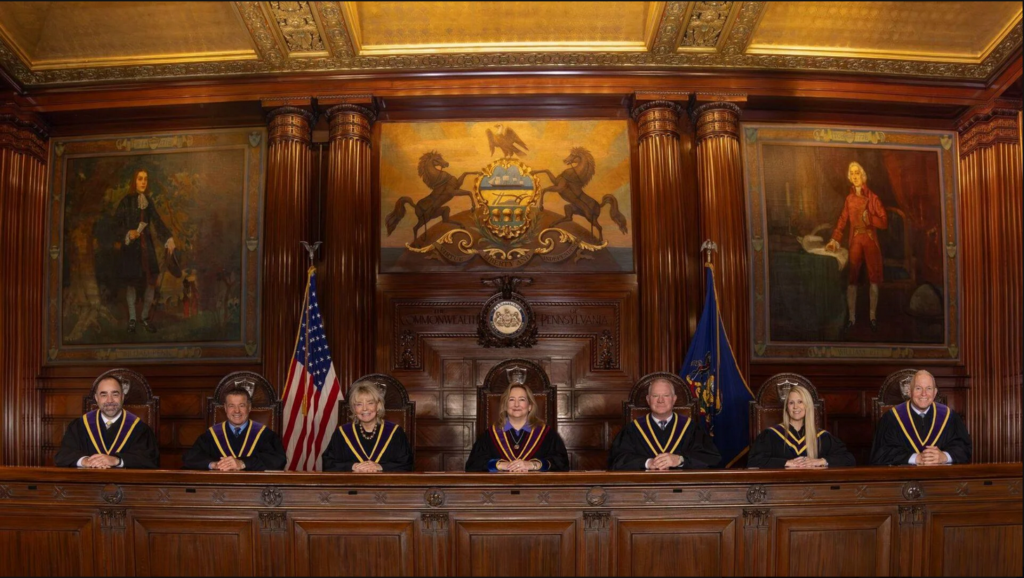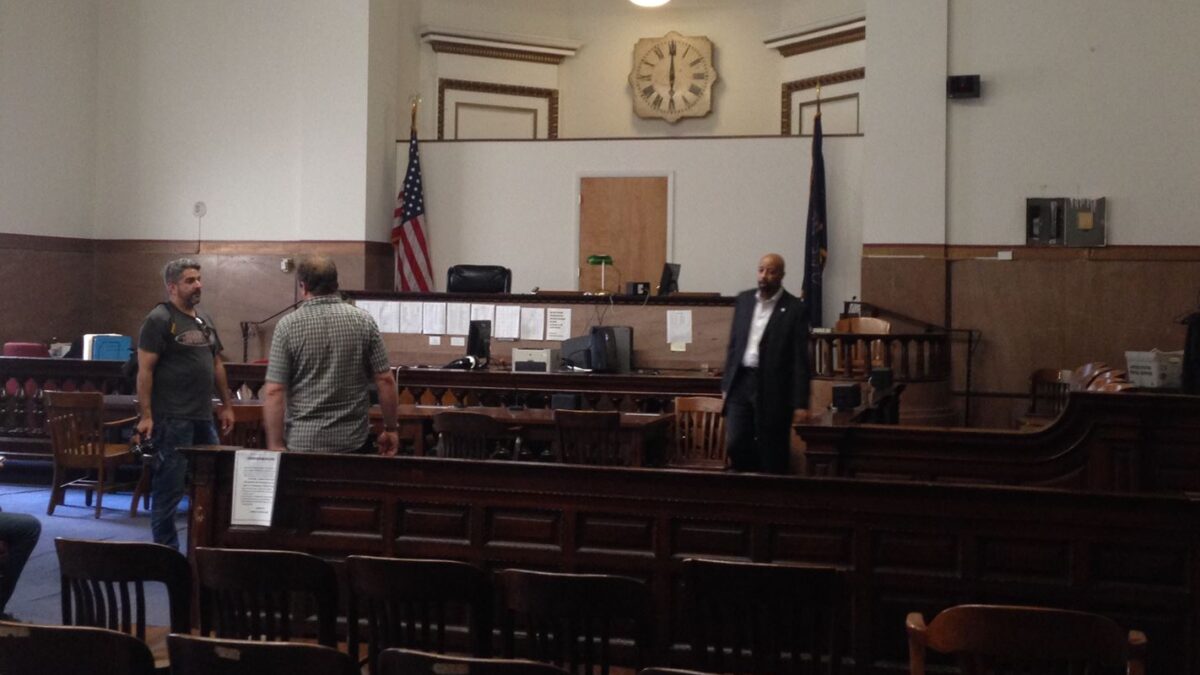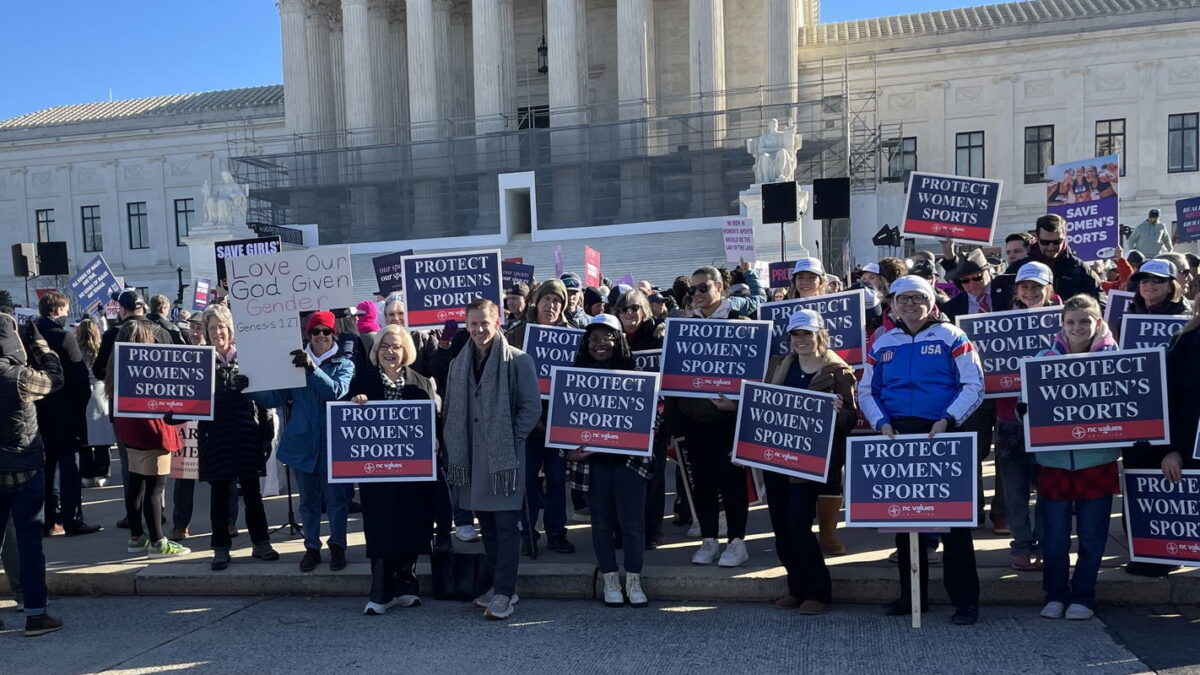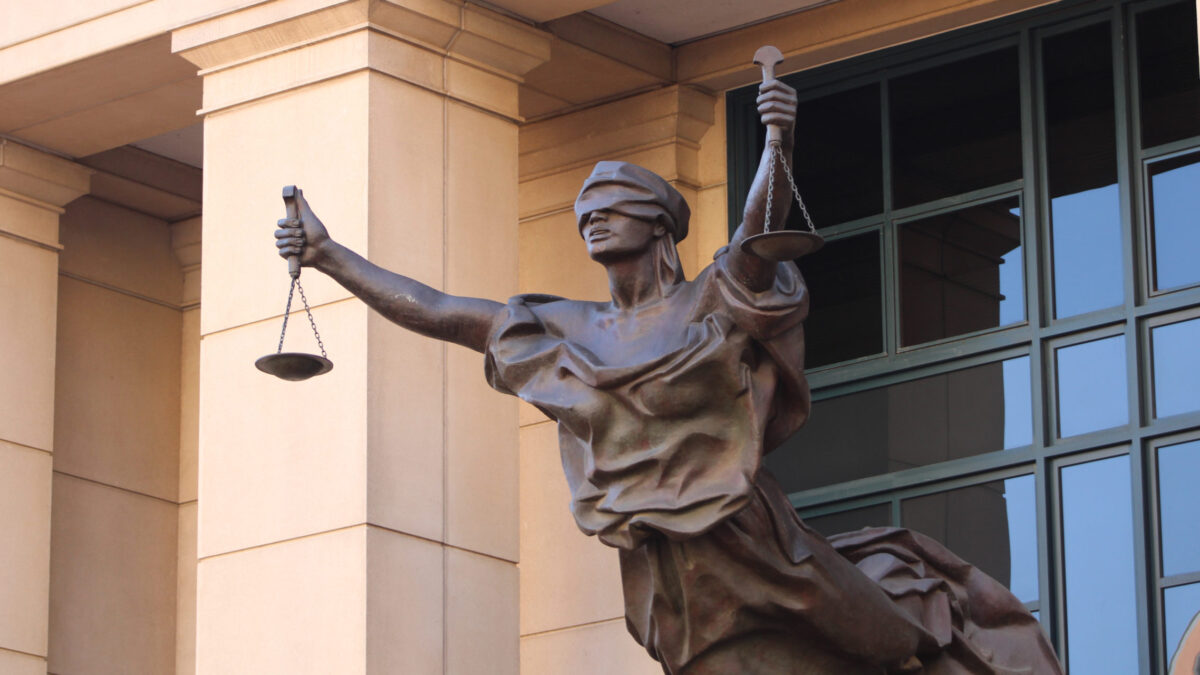Emily Kreps: Judicial restraint on the line — PA Supreme Court retention and the Constitution
Twenty years ago, Pennsylvania voters sent shockwaves through the political establishment. Voters were tired of being ignored and voted NO on retention for Pennsylvania Supreme Court Justice Russell Nigro. It was the first and only time a statewide appellate judge had ever lost a retention election.
That history frames today’s debate over judicial restraint.
On November 4, Pennsylvanians will decide whether to retain three justices — Christine Donohue, Kevin Dougherty, and David Wecht — for another ten years. Their record raises important questions about how far the Court should go in interpreting, or expanding, the state Constitution.
These justices, in my view, have expanded “rights” not found in the text of our Constitution. They have signaled an intent to recognize new constitutional rights — such as a right to abortion — that would override long-standing state law. They have assumed powers over redistricting and election procedures traditionally reserved for the legislature.
Their own statements illuminate their approach. In a recent judicial forum in Philadelphia, Donohue was asked why she wanted to serve another ten years. She said, “I want to be certain that the seeds that we’ve sown, in terms of extending protections that have always been there but have not been recognized under the Pennsylvania Constitution, continue to be recognized by the court that I sit on.”
That’s not judicial restraint — that’s rewriting the Constitution.
Abortion
In 2021, abortion providers challenged Pennsylvania’s long-standing ban on using Medicaid funds for most abortions and asked the court to find a right to abortion in the Pennsylvania Constitution (Allegheny Reproductive Health Center v. PA Department of Human Services). In 2023, the Supreme Court (including Wecht, Donohue, and Dougherty) overturned a ruling that had maintained the ban on abortion funding. It returned the case to the lower courts to decide whether the Medicaid abortion ban itself is unconstitutional.
Two of the justices, Donohue and Wecht, would have gone further. They supported the abortion industry’s request to declare a “fundamental right to reproductive autonomy,” something not found in the Pennsylvania Constitution. Donohue, Dougherty, and Wecht are all endorsed by Planned Parenthood Pennsylvania Advocates – the abortion industry’s campaign arm (Planned Parenthood endorsed them when they initially ran in 2015). This means abortion policy in Pennsylvania may soon be dictated by activist judges and Big Abortion rather than the legislature.
Redistricting
In 2017, the League of Women Voters challenged Pennsylvania’s 2011 congressional district map as an unconstitutional partisan (favoring Republicans) gerrymander under the state’s Free and Equal Elections Clause. The Supreme Court (including Donohue, Wecht, and Dougherty) struck down the map in mid-election cycle in 2018 and ordered the legislature to redraw it. The Court ultimately adopted its own revised map (favoring Democrats), despite the responsibility for redistricting given to the state legislatures in Article 1, Section 4 of the U.S. Constitution.
Donohue, Dougherty, and Wecht continued their unconstitutional takeover in 2022. After the 2020 Census, then Gov. Tom Wolf (D) vetoed the Congressional map approved by the Republican majority Legislature. The Court (including Donohue, Dougherty, and Wecht) concluded that when no agreement is reached, the Court on its own can adopt a different proposal (ignoring the US Constitution). They’re even backed by Obama’s former Attorney General, Eric Holder, and his national redistricting PAC.
Election Integrity
Since 2020 and the passage of Act 77, there have been multiple lawsuits regarding election law, most centering around mail-in ballots. The Democrat Party sought adjustments to mail-in voting rules during the pandemic. The Court (including Wecht and Dougherty), despite the law, extended the ballot receipt deadline by three days, ruled that ballots lacking a legible postmark should be presumed timely, and allowed counties to use ballot drop boxes. It declined to require signature matching. Justice Donohue dissented.
After the 2020 election, parties disputed whether counties had to reject mail ballots when the outer-envelope declaration lacked a handwritten name, address, and/or date. The Court (including Donohue) decided that ballots should not be thrown out just because the voter left the name or address blank on the envelope, since the law does not require those fields. For that election, the Court also said missing dates on the envelope did not automatically make a ballot invalid, though Wecht disagreed. Dougherty dissented.
Now, in September 2025, the Court, including Donohue and Dougherty (but not Wecht,) ruled that counties must notify voters if their ballot is going to be rejected due to a mistake, such as missing a signature or the date. This is in direct contradiction to the previous ruling in 2020, stating that counties were not required to do so.
Taken together, these opinions reflect a judicial philosophy that, in my view, advances policy outcomes beyond the Constitution’s text. Their campaign endorsements and rulings show they have a clear agenda and plan to continue legislating from the bench for another ten years. They are even running political ads that clearly state their bias.
On November 4th, Pennsylvanians will decide whether to retain Justices Donohue, Dougherty, and Wecht. Voters should review the court’s recent opinions and consider if they want this type of judicial expansion to continue, or want judicial restraint.
Emily Kreps is the legal assistant for Pennsylvania Family Council. You can view more information on the retention races and other candidates at www.PAFamilyVoter.com.
Editor’s note: This article was updated to correct a misstatement about Justice Wecht’s position in the Sept. 2025 election law case. He was not a part of the majority in that case. We regret the error.





Brilliant article Emily. So well stated
Amazing how their decisions always seem to benefit democrats and are opposite as to the PA laws currently have in force.
I will vote NO, NO, and NO.